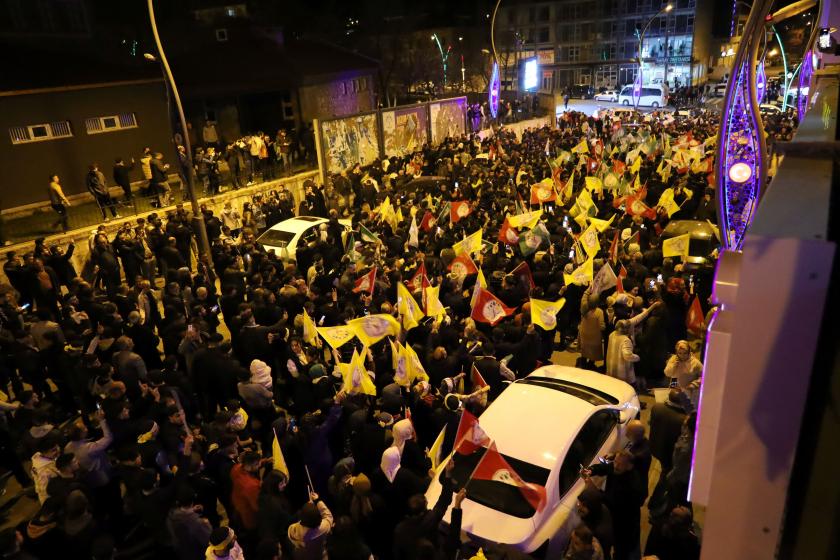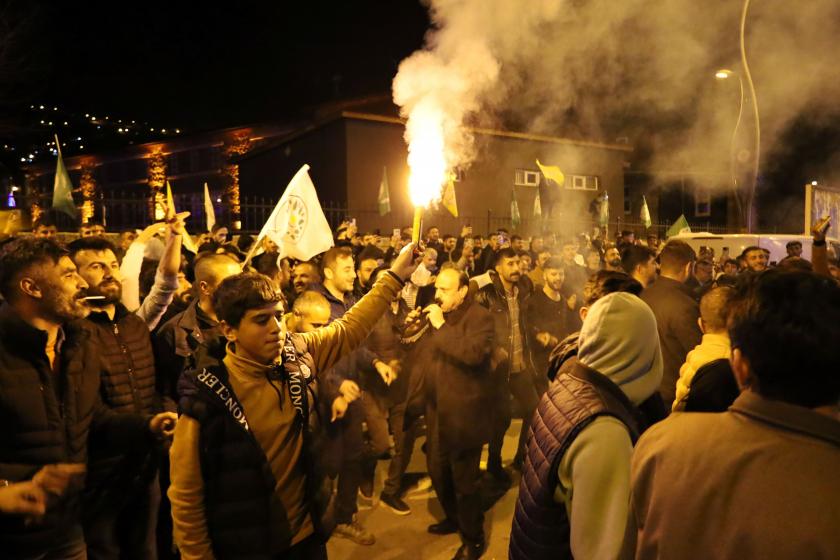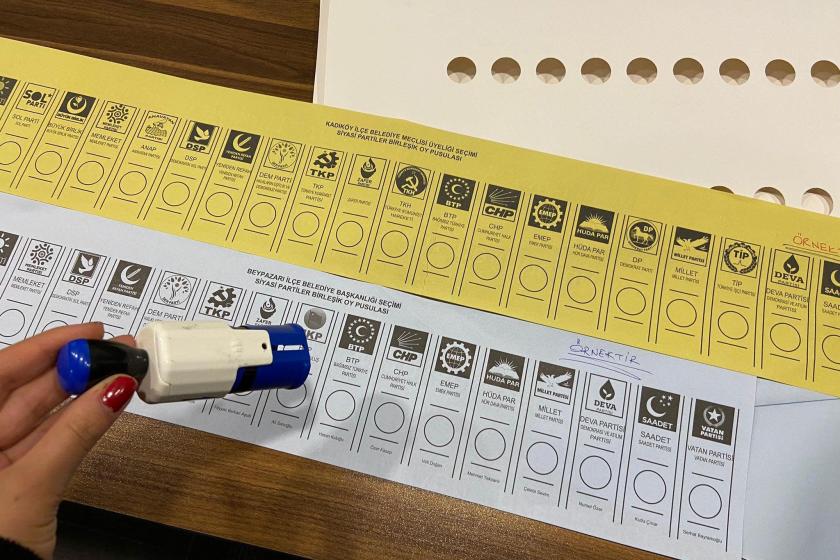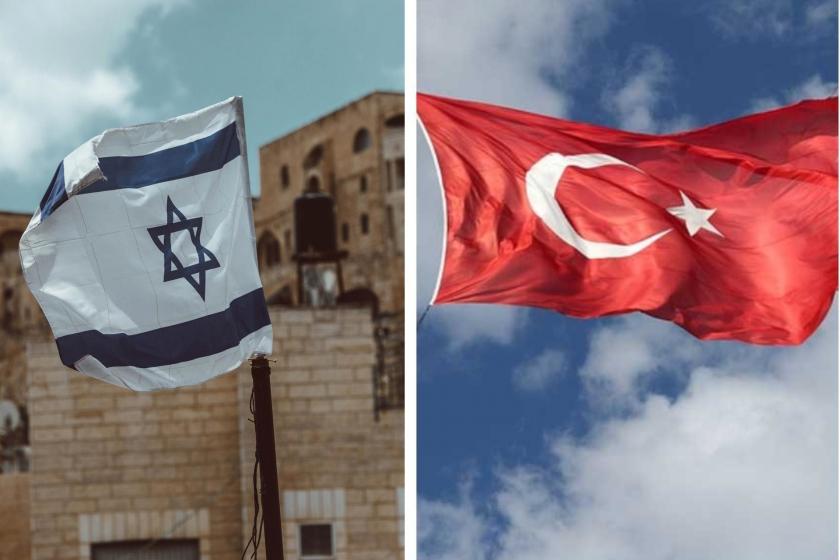Is the question of Palestine a question for the Palestinians alone?
Israeli security forces killed more than 60 Palestinians during the opening of US Embassy. What can happen about the Palestinian question after now?
19 May 2018 09:12
Israeli security forces killed more than 60 Palestinians during the opening of US Embassy. What can happen about the Palestinian question after now?
 Hediye Levent
Hediye Levent
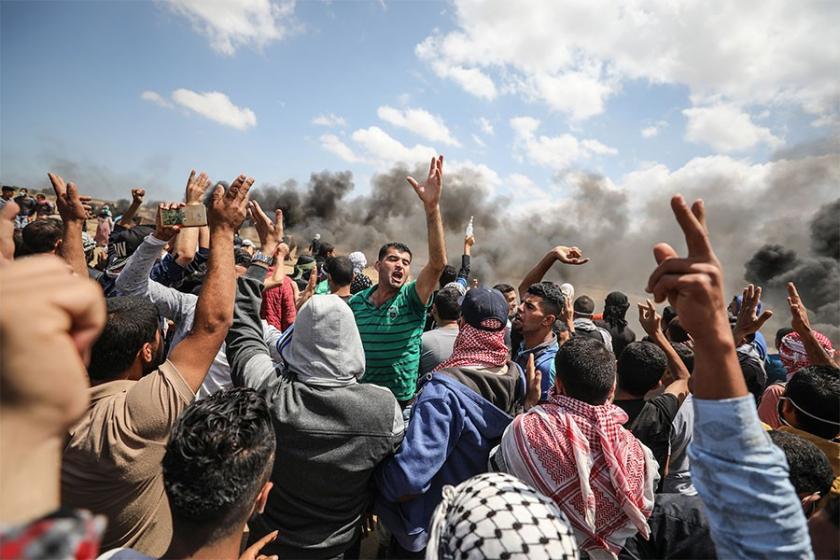
In the last days of the last month of 2017, the US, having defined Jerusalem as the capital of Israel, announced that it will be moving its embassy from Tel Aviv to Jerusalem. This announcement caused a substantial bit of furore those days. With Turkey in the forefront, countries of the region reacted with statements of objection and condemnation. A statement we hear most is “We do not accept this decision.” Very well, you do not or we do not accept the decision but despite this statement with a “high level of deterrence,” what are you going to do if the US does not renounce this decision? Nothing.
Incidentally in December, following the US announcement, two nominal meetings took place. After those meetings, comments that Jerusalem has been recognised as the capital of Palestine were made despite the US recognition of Jerusalem as the capital of Israel. In honesty, as someone who closely follows the Arab media and agenda, I still cannot make sense of where exactly was recognised as the capital of Palestine in retaliation at one of these meetings lead by Turkey. It was not the statement that “Jerusalem is the capital of Palestine” that emerged from those meetings, but we ended up watching shows of power keeping the headlines and TV broadcast slots substantially busy.
While administration/rulers who make the Palestinian question a matter of home or even electoral politics continued making these “unending shows of power,” they seem possibly to be relying on the fishlike memory of the region so much so that their trust is not misplaced. Overblown statements aimed at masses internally rather than Palestine, severe condemnation messages, a few street demonstrations and the US announcementdissipated into the ether of the agenda and has been forgotten until the day when the embassy was moved, and its opening took place.
The opening took place on 14th May, that is, on the official day of founding of Israel. And 15th May is the day of Naqba; the symbol of the sequence of disasters extending from the start the day immediately after the declaration of the founding of Israel when hundreds of villages were occupied to a few generations of migrancy.
We have watched live on air the attack on the participants of the Great Return March by the Israeli security forces. The number of Palestinians killed so far is 60. Israel declared them all as terrorists, one of the ministers even went onto remark “Our security forces did a great job”. Lists containing the names, ages and information about some of those killed by Israel have began to be released. The killed comprise, on the main, of those who are in their early 20s. There are a few children aged 14-15 too. Attended by Trump’s daughter, the embassy opening celebrations also went on simultaneouslywith theclashesongoing.
Once again, the social media stirred, one after another, millions of tweet and Facebook messages, harsh messages of condemnation from leaders, statements that began with the US and Israel and ending with shoulds and musts…
Challenging the US is no small feat, that is as it may be but as of now, there is no step in the way of sanctions against Israel, a country of the region, and it does not seem as though there will ever be. We are talking of attempts of the sort of partial suspension of trade relations, representative level being reduced that of chargé d'affaires from embassy or bringing up a matter/dossier of interest to both the US and the Israel in the public agenda. No such steps were forthcoming from any country of the region including Turkey. Incidentally, Turkey did not withdraw its ambassadors in the US and Israel but merely called them to Ankara for “consultation.” In the aftermath, possibly because of reaction from below, it asked Israel’s consul general in Istanbul to “return to his country for a while.” Israel made the same demand from the Turkey’s consul general in Tel Aviv. The draft concerning the partial suspension of some of the agreements with Israel put out for vote in the Assembly has not gone through because of AKP and MHP votes. While,on the one hand, statements of the “patron of the oppressed” kind continuing to emanate from Turkey confirmed the status of the Palestinian question as fodder for home politics and that it will up for use in the upcoming election process, on the other, it could be asserted that steps only “to save the day” which are however ambiguous are taken.
It will not be a mistake to suppose that Israel will continue the tit for tat and will not be backing down. Let us see where this exchange of attempts ends and with the backing down of which side?
Well then, what can happen about the Palestinian question after now?
It is not at all easy to get a superpower like the US to move back its embassy back to Tel Aviv from Jerusalem. Furthermore, this step can also seem as an open cheque (though with an uncertain expiry date) to Israel not only for the question of Jerusalem and Palestine but also for its attempts in the region. Additionally, it is also known than the US is implementing a “solution!” plan, described as the “treaty of the century,” which it embarked with Saudi Arabia.
Well, can the “treaty of the century” resolve the Palestinian question at a time when Jerusalem has been recognised as the capital of Israel, the regions controlled by Palestinians have become disjointed pockets of land and while the blockade of Gazza continues?
That it will solve the question but that the solutions will not favour the Palestinians much is clear. It is not at all realistic to expect a radical change in the passive attitude displayed by regional countries during the latest developments after this. On the other hand, when the state of division in amongst themselves, their inability to continue the struggle as an organised force is considered in tandem with essential needs such as finance, arms, logistics, education and political support, the forthcoming period seems like it is going to be an especially dark period for the Palestinians. Besides, a regional power like Saudi Arabia is the US partner in the “treaty of the century.” If the “treaty of the century” in which the Palestinians will be forced to be around the table with no negotiation rights or word, what Israel, who had this “solved” this issue, will embark on the region is hard to gauge.
Once it is also considered that powers counterbalancing Israel in the region, with primarily Syria, has suffered in the process of the Arab Uprising, it is useful to remind once again that the region, in its entirety, has entered a dangerous period of struggle.
It is a period when holding on with epic speeches, with unending and day-saving statements and with daily changing policies does not seem to be all that possible. Ground for all is fragile, a turmoil from which the one who steps firmly will emerge with the least loss or with gain…
In conclusion, the points into which the Palestinian question will evolve will also add some to list of winners and yet others to that of losers. Once the current struggle between Saudi Arabia and Iran is also considered, it is possible to assert that we are at the beginning of an extremely uncertain period. Let our end prove some good.
